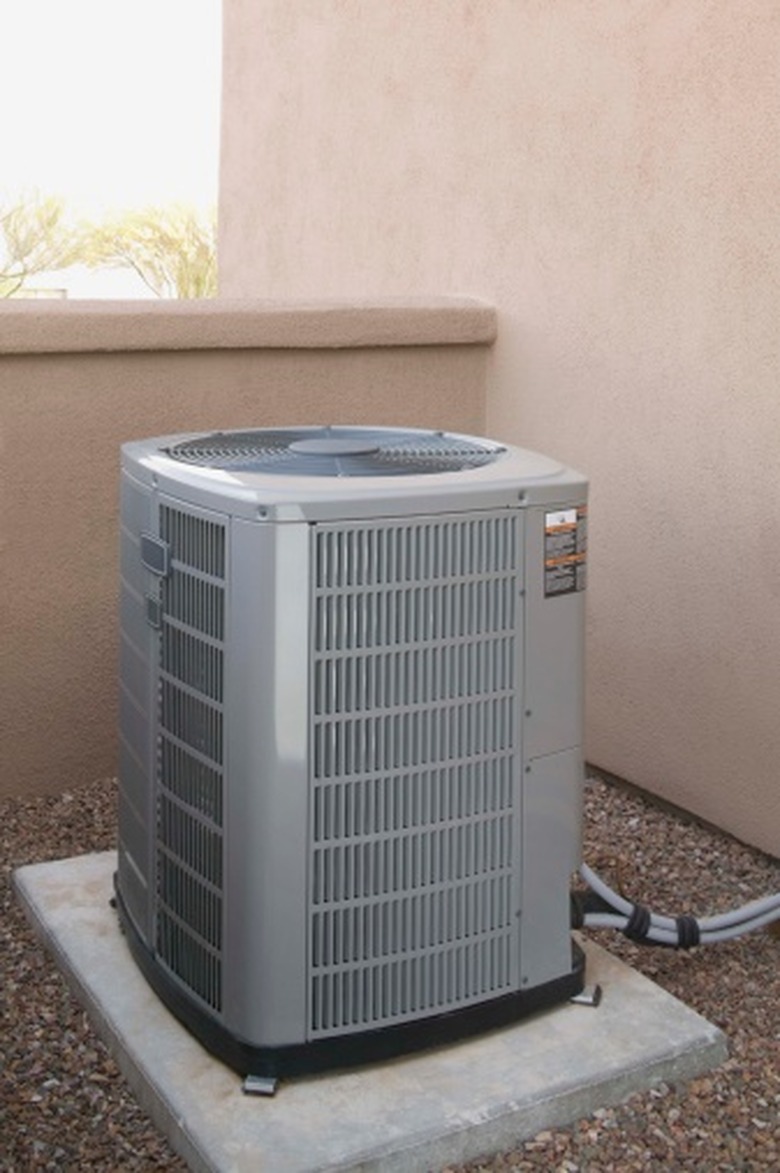How To Tell Whether Your Air Conditioner Is Frozen
Air conditioning units freeze for a number of reasons. If the unit is too small for the area it's required to cool, the overworked coils will often freeze. Coolant leaks, debris buildup, and cold temperatures may also cause a unit to freeze. Whenever an otherwise sound air conditioning system's cooling capacity reduces, first check whether or not it's frozen before troubleshooting further or calling a technician.
Step 1
Turn the air conditioner off and disconnect the circuit breaker it's connected to.
Step 2
Look for visible ice on the outside of the air conditioning unit. If you see none, open the panel according to the manufacturer instructions and observe the cooling coils. The ice may be there. If you see no ice, the unit may still be frozen.
Step 3
Turn the air conditioning unit back on and listen at the window or outdoor unit. If the unit doesn't respond or sounds as if it's stuttering (turning off or on repeatedly) or struggling, it's likely frozen even if large icicles haven't formed.
Step 4
Turn the air conditioning unit off or to the "Fan" setting for several hours.
Step 5
Turn the air conditioning back on. If it's again cooling normally, freezing was the problem.
Tip
To prevent your air conditioner from freezing up, turn it off or to the "Fan" setting when outdoor temperatures are lower than indoor temperatures or lower than 60 degrees Fahrenheit. The air conditioning unit must have enough British thermal units to cool down the space. Perform scheduled maintenance. Clean the filters and evaporator coil. The ducts and blower motors must be sound. Clear anything restricting the air flow around the unit. Check for refrigerant leaks.
